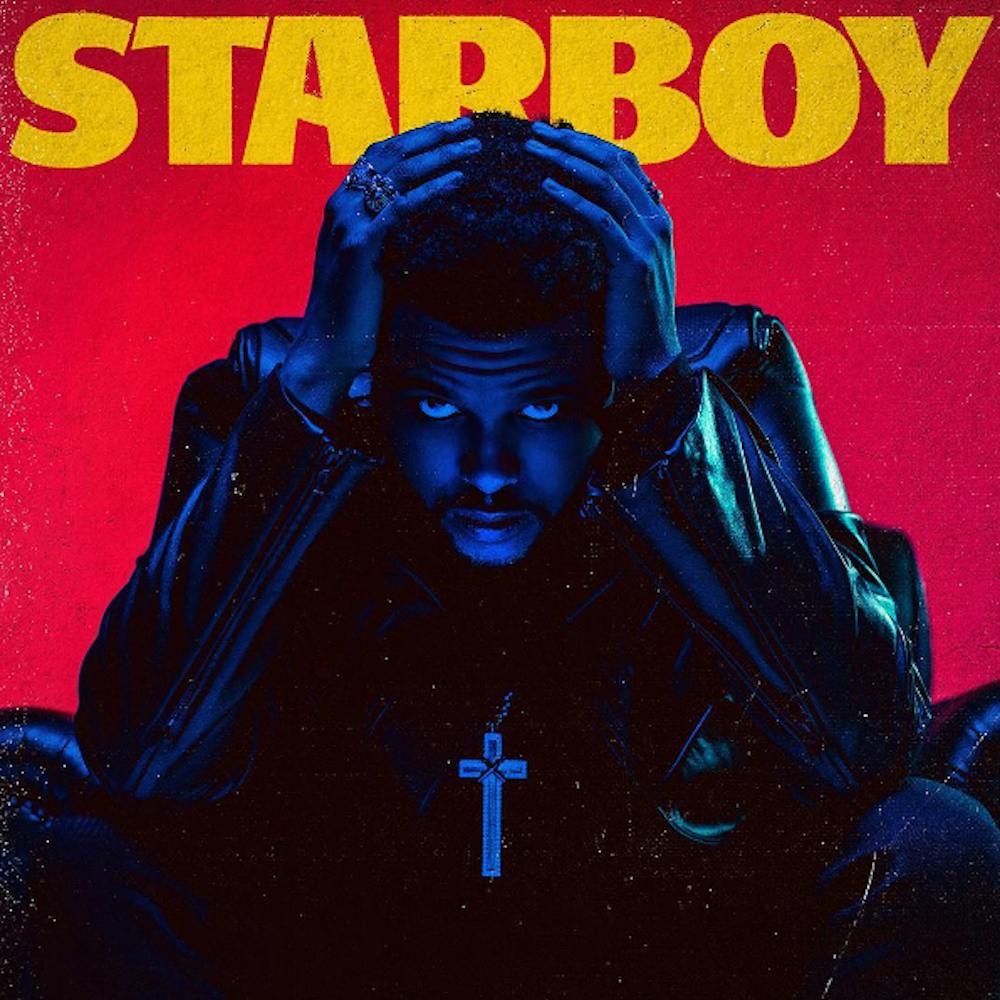Album: "Starboy"
Released: Nov. 25
Label: XO
Rating: B-
The Weeknd's third studio album, "Starboy," debuted to an audience of eager fans. Stocked with retro style, laid back vibes and, as always, a party mindset, the 18-track album fulfills fans’ eager expectations after being led on with several track leaks and teasers, including the short film "Mania."
Slow percussion, rhythmic lyrics and easy tempo accompany many of The Weeknd’s tracks and remind the listener of an older hip-hop style, perhaps mixed with a bit of blues. The artist further displays his throwback vibes to James Dean in the track "Ordinary Life" with the lyric, “Like I'm James Dean, I'ma die when I’m young.”
Electric sounds and a beat reminiscent of an '80s style overtake many tracks and the track "False Alarm" in particular, which continues reinforcing the album's underlying paradigm of seeking true love. Even background vocals and sounds emulate older-style music with quick, perky up-beats like “hey, hey, hey, hey” or synthetic backbeats that are fast and peppy, as if taken from an '80s workout video—although paired with The Weeknd’s smooth vocals, the album manages to pull off a unique and trendy effect.
Despite strong implications of a raging social life, one may almost feel personally connected to the musician’s life on a deeper level than simply partying. Somehow The Weeknd seems to display a part of himself through the lyrics of the album, weaving together a depiction of his lifestyle which can relate to his audience’s yearning for love, honesty, and fulfillment through his own. Revealing lyrics in "True Colors" — “Paint me a picture with your true colors / these are the questions of a new lover” — convey a sentiment most everyone can relate to in at least some part of their life: Is the person I'm with showing me who he or she really is and will always be? The Weeknd seems to desire to share his doubt and quest for true love with his listeners and relate to their struggles along this path.
Yet in contrast to his desire to find someone who loves him for who he is and not just his money or fame, The Weeknd sings aggressively vulgar lyrics about women, mentioning one night stands and other sexual exploits and degrading women. The listener may wonder how The Weeknd can juxtapose the search for unconditional love with sexist, abusive sentiments toward women in the same album. This is certainly one of the album’s downfalls — his lyrics need to be taken with a grain of salt.
One may infer that this album is a microcosm of The Weeknd’s day-to-day life: partying, women pining over him, but yet his longing to know if any of the women he has been with or will ever be with will love him for who he is, not just his money or fame, shows something else. Perhaps to forget this mental and emotional crisis, he continues a life of raging parties and meaningless, casual relationships with women.
Some of the slower tempo songs like "Nothing Without You," "All I Know" and "Die for You" are indefinitely romantic and undeniably personal experiences from one of The Weeknd's past or present relationships. Again you can see transparently the conflict and struggle of an artist seeking true love and yearning for one woman standing by his side, yet being constricted by his doubt of whether her love is true, transparent and genuine.
A conflicted album of genuine love and the party lifestyle — in which one of these themes may influence the other — The Weeknd seems to challenge questions of time, truth and destiny with retro, throwback tempos and backbeats that add a deeper component to a curiosity about the existence of true, honest and everlasting love.

